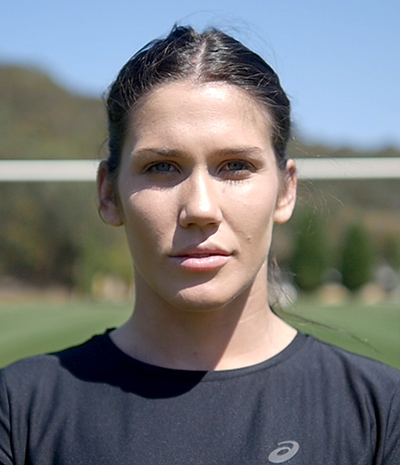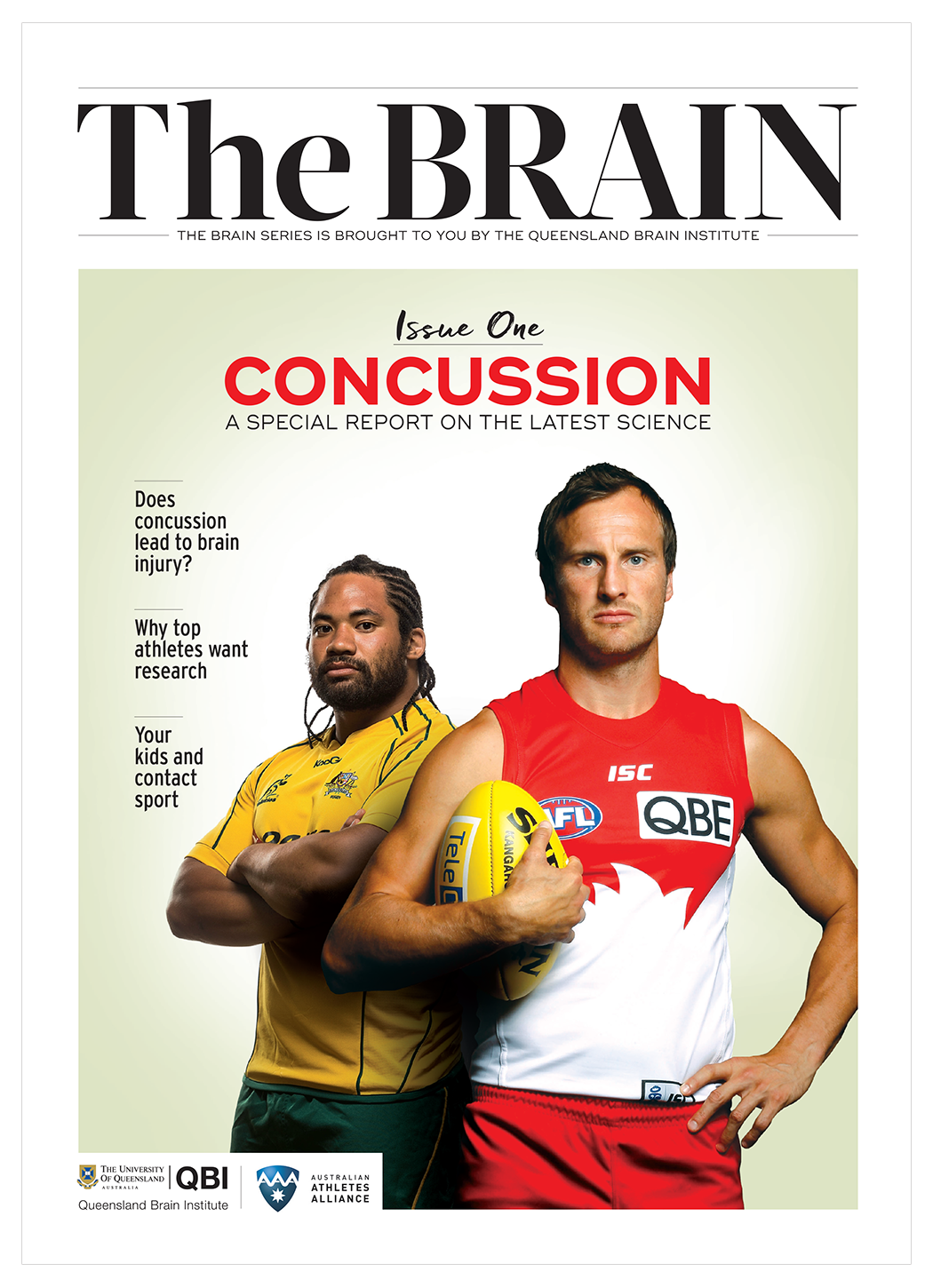Charlotte Caslick
 Olympic gold medallist and Commonwealth Games silver medallist, professional rugby sevens player Charlotte Caslick is at the top of her game.
Olympic gold medallist and Commonwealth Games silver medallist, professional rugby sevens player Charlotte Caslick is at the top of her game.
Head knocks are not uncommon in rugby and 23-year-old Caslick estimates that during each contact session she'd have at least one hit that "hurt a little bit," she says. "It’s probably more often than you’d like."
She's had one concussion and that was enough to show her how serious a head injury could be. In a quarter-final against the US, Caslick's head collided with a knee of an opposing player when she went in for a tackle.
"I think immediately after I was just lying on the ground; I was just a bit out of it. Once I got off I just felt a little bit rattled and emotional about it," she says.
After assessment, she was ruled out from playing the rest of the game. Caslick had a week off any activity and a slow return to full training after two weeks. She praises the way the medical team handled her injury.
"Our medical staff were very cautious about it; we ran through the symptom control very thoroughly. I think I was lucky that we did go about things the right way – I stayed out of contact for the right amount of time and when I did comeback I was feeling really good."
Caslick says the guidelines implemented for concussion during play help coaches, medical staff and athletes with the decision of whether or not to return to the field. "It’s pretty black and white, whether you’re in or you're out," she says. "It's good for us athletes knowing there are standards there that are for our wellbeing."
She recognises the importance of good concussion management. "As much as sometimes you’d love to go back out there, it’s obviously best for your health and wellbeing to make sure you do take the right time to get it right," she says.
"One of our teammates had a severe concussion and she wasn’t right for weeks. We just knew that she had to take the time to get better because we wanted her to be back out there playing at 100%. There’s no point her coming back and only being able to play for a little bit out there. So I think our sport is really good about understanding that concussion is serious and that we don’t want girls coming back out onto the field if they’re not ready."
Early education about the best ways to move your body during contact can go a long way, Caslick says. "If you go about contact the right way and if you’re taught from a young age the right technique, it can be safe."
And while she doesn't worry about concussion day-to-day, she still considers life after rugby. "I enjoy playing so much, but obviously in the back of my mind I do think about [head] injury every now and then, and hope I don’t have long-term effects when I do finish."

